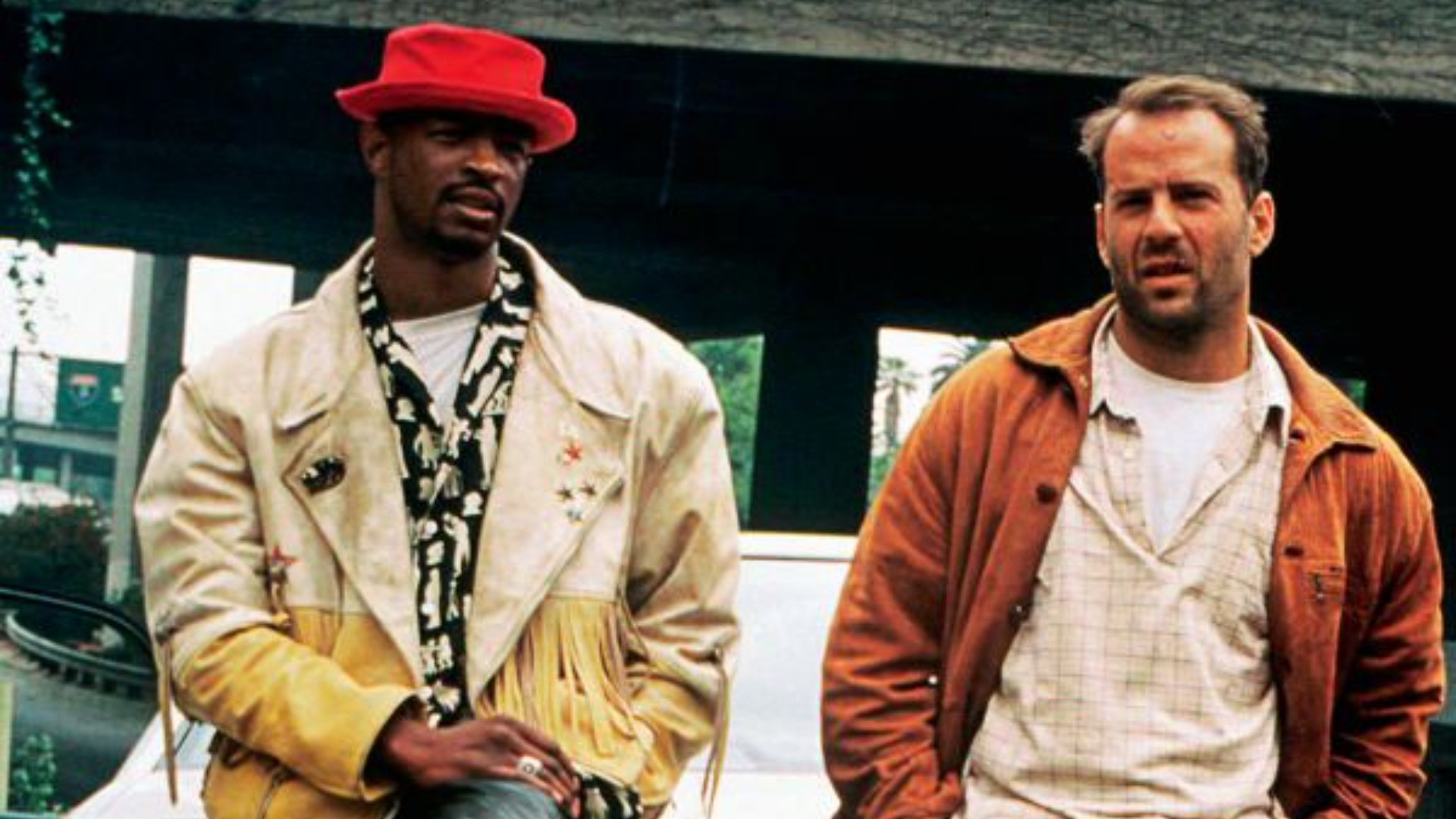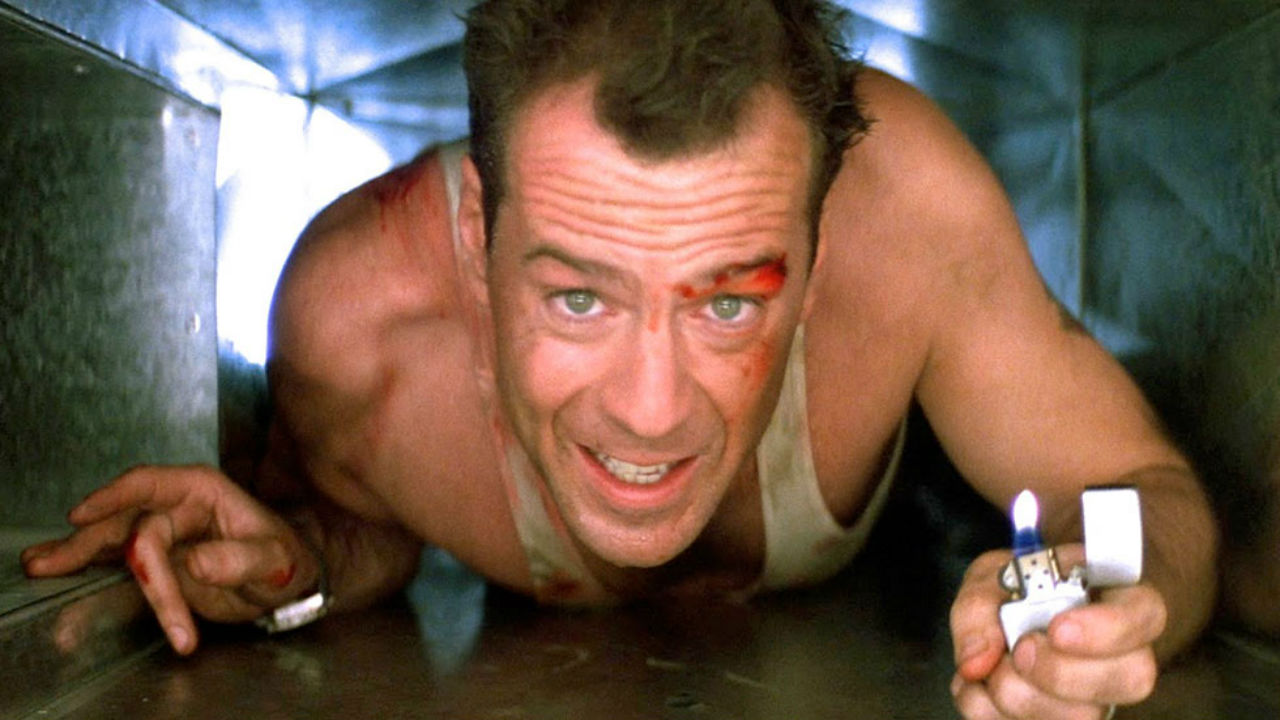Is it just me, or is The Last Boy Scout Bruce Willis' best film?
A Total Film writer on why it's a bigger deal than Die Hard...

If Bruce Willis had been a star in the ’40s and ’50s, he’d have been a staple of film noirs – the tough, smart-mouthed gumshoe with a code of honour hidden beneath corrosive cynicism. Sin City recognised this, casting him as detective John Hartigan, stoic and sardonic. But it’s 1991 action-thriller The Last Boy Scout – written by Shane Black, directed by Tony Scott – that supplies his perfect role.
“What about John McClane?” you ask. Maybe, if four variable sequels hadn’t left his record so stained; his vest looks pristine in comparison. And besides, I’ve always preferred Scout to the original Die Hard.
Partly it’s the knowing noir touches, as Willis’ flea-bitten P.I. Joe Hallenbeck smokes and drinks and chases down a case involving an exotic dancer (Halle Berry), a dead partner, a couple of car bombs, a corrupt senator and gambling in major league football.
Partly it’s the glossy action (the rain-lashed football match that turns shockingly violent, the car in the swimming pool, the gun-in-the-hand-puppet shootout), masterfully edited by the best cutter in the action business, Stuart Baird.
But mostly it’s the crackerjack wisecracks batted between Joe and Jimmy Dix (Damon Wayans), the disgraced former football star who finds himself riding shotgun on the case. “Danger’s my middle name,” Jimmy grins at Joe. “Mine’s Cornelius. Tell anyone, I’ll kill you,” comes the half-serious reply.

Whereas Die Hard is confined to the Nakatomi Plaza, Scout earns its rambling badge traversing LA: night-time alleys, all steam and neon, and sun-soaked streets. “Water’s wet, the sky is blue, women have secrets – who gives a fuck?” is Joe’s motto, but Scott, a master stylist, gives us orange sunsets and blue-filtered interiors.
True, there’s something quite sour about Joe’s female relationships – his wife is having an affair; his 13-year-old daughter regularly calls him “fuck-up” and “asshole” – but here, as elsewhere, the tone is one of self-conscious excess. Black and Scott are taking noir to the nth degree.
Bringing all the latest movie news, features, and reviews to your inbox
Think Bogie’s Philip Marlowe minus the Hays Code, plus double-fisted gunplay. Hell, the fact that the whole film is gloriously OTT makes it glorious, period. Or is it just me?
- Is it just me, or is it time to ditch holographic interfaces?
- Is it just me, or are there no good horror boogeymen any more?
- Is it just me, or is Pete's Dragon the best Disney remake?
Jamie Graham is the Editor-at-Large of Total Film magazine. You'll likely find them around these parts reviewing the biggest films on the planet and speaking to some of the biggest stars in the business – that's just what Jamie does. Jamie has also written for outlets like SFX and the Sunday Times Culture, and appeared on podcasts exploring the wondrous worlds of occult and horror.


